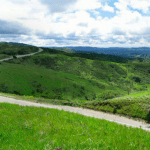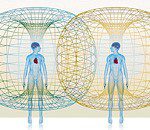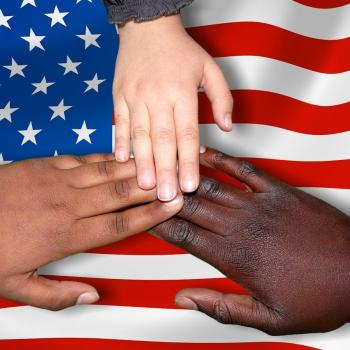 Midlife crises seemed to happen earlier in the human life cycle, if you go back a couple of millennia. Gautama Siddharta, John the Baptist and Jesus all encountered it in their late 20’s. Sheltered childhoods erupted into passionate and turbulent public ministries that ended prematurely for two of them at the hands of the cultural leaders whom they managed to antagonize.
Midlife crises seemed to happen earlier in the human life cycle, if you go back a couple of millennia. Gautama Siddharta, John the Baptist and Jesus all encountered it in their late 20’s. Sheltered childhoods erupted into passionate and turbulent public ministries that ended prematurely for two of them at the hands of the cultural leaders whom they managed to antagonize.
Gautama Siddharta (the Buddha) lived into his 80’s while John and Jesus barely made it into their 30’s. And Buddha, in my opinion, personified the three stages of growth that John and Jesus, between them, re-enacted. Let me explain what I mean.
The Buddha was born into affluence (as a prince of the realm) and spent 29 years being protected and pampered in a hedonistic lifestyle. Then in three nocturnal sorties into “the world” he encountered an old man, a sick man and a dead man. He was shocked. So the second phase of his life consisted of six years spent in a radical asceticism that saw him attempting to survive on a single grain of rice a day. Still, enlightenment eluded him until he discovered the “Middle Way.” This realization was to make him one of the greatest avatar-psychologists of all time. It was the third phase of his life.
John the Baptist, who is variously portrayed in the gospels and apocrypha as the cousin, colleague, teacher or precursor of Jesus, also was born into relative affluence. His dad was a priest in the Temple at Jerusalem. However, at some stage, John abandoned this lifestyle and may have become a member of the Qumran community (the Essenes) who gave us the Dead Sea Scrolls.
Then, just as the Buddha did in his second stage, John became an ascetic who wore a garment of camel hair and feasted on wild honey and locusts – not your typical “old family recipe.” He lost his head, literally, when a drunken king Herod had him decapitated at the request of his consort, Herodias, and her seductive dancer-daughter Salome. So John had recapitulated stages one and two of the Buddha’s life.
Unlike John or the Buddha, Jesus was neither coddled in a hedonistic household nor did he embrace a radical asceticism, but opted immediately for the Middle Way. This led the populace and the religious leaders to call him “a glutton and a drunkard, a friend of prostitutes, tax collectors and sinners,” a great recommendation to have on your curriculum vitae if you wanted to apply for a job as a carpenter or a preacher.
Jesus gave a very enigmatic compliment to John when he said, “Of all the men born of women there has never been a greater than John.” And then, in his typical paradoxical fashion, added, “and yet I tell you, the least in the kingdom is greater than John.”
It is not ascetical practice nor yet adherence to religious legalisms that usher in the kingdom of God, but rather love and compassion and living the ordinary life in a fully awakened fashion.
What does that mean?! I believe Jesus was saying that if asceticism could bring enlightenment, John did it best; however, it is not ascetical practice nor yet adherence to religious legalisms, that usher in the kingdom of God, but rather love and compassion and living the ordinary life in a fully awakened fashion.
Which brings me to Jesus’ understanding of his mission and his job description. Luke’s gospel uses a passage from the book of Isaiah to illustrate Christ’s self-understanding. Here is Luke quoting Jesus quoting Isaiah (the numbering system is mine):
1. I have come to preach good news to the poor
2. To bring liberty to captives
3. To give recovery of sight to the blind
4. To set prisoners free
5. And to declare a year of favor from the Lord.
Although the listener would hear this passage in numerical sequence (1, 2, 3, 4, 5 – as I have numbered them), the dénouement of the passage is got by spiraling inwards e.g., 1 to 5 to 2 to 4 to 3 (the climax). This is a form of Hebrew poetry, another form of which is called Semitic Parallelism, when separate lines repeat the same idea in different words. Hence, lines 1 and 5 repeat the same idea –
1. I have come to bring good news to the poor
5. And to declare a year of favor from the Lord.
and lines 2 and 4 repeat the same idea:
2. To bring liberty to captives
4. To set prisoners free
This, then, spirals into the climax which is verse three:
3. To give recovery of sight to the blind
Souls are not sightless in their natural state, but one eye is blinded by the process of incarnation – we forget who we are, where we came from and why we’re here. And the second eye is blinded by being marinated in the cultural trance.
And note that it speaks of recovery of sight. Souls are not sightless in their natural state, but one eye is blinded by the process of incarnation – we forget who we are, where we came from and why we’re here. And the second eye is blinded by being marinated in the cultural trance. Incarnation and “education” put out our eyes.
Of the 19 major topics taught in American schools, the one that consistently gets voted, “the most boring” is history. And the reason, I believe, is simple. History has been reduced to a record of battles, conquests and concordats written by the winners. Orwell’s “1984” said that those who control the past control the future, and those who control the present control the past. The historical narrative is always in the hands of the ruling, despotic oligarchy.
History is the awe-inspiring tracing of the movement of Spirit that began in God’s womb and will end in God’s heart.
In reality, history is the awe-inspiring tracing of the movement of Spirit that began in God’s womb and will end in God’s heart. But you won’t find that mentioned in our school curricula.
So let me do a little bit of revisionism of my own. Our grandmother, the cosmos, was nine billion years old when she conceived and gave birth to our mother, Gaia. Gaia took 800 million years to become pregnant and has been birthing more-and-more-complex life forms for over 3.8 billion years. One of her most recent infants is called Homo Sapiens (wise one). He had the ability to reason but not to self-reflect, so 50,000 years ago she gave Homo Sapiens a sibling called Homo Sapiens Sapiens (wise, wise one). Because Homo Sapiens Sapiens had language (unlike his older brother Homo Sapiens) he was capable of self-reflection.
Then “yesterday” (beginning about 2,500 years ago) she began sending us a long line of avatars – the Buddha, Mahavira, Lao Tzu, Confucius, Zoroaster, Isaiah, Jeremiah, Ezekiel, Jesus, Socrates, Plato, and Aristotle.
Violence has been sired in the orgy-filled bedrooms of religion, politics, economics and militarism.
So the emergence of Spirit in human form is very recent. And so, in an age-appropriate fashion, we are behaving like two-year-olds throwing temper tantrums in the candy store. The gift of reason was intended to help us overcome our animal instincts, but it has since been prostituted in the service of greed. Reason has been seduced and has conceived propaganda; it has been molested and become pregnant with prejudice; it has been raped and forced to birth genocidal wars.
Violence has been sired in the orgy-filled bedrooms of religion, politics, economics and militarism. And the greatest sacrilege is that we have claimed God’s blessing on this blasphemous enterprise.
Gaia responded by sending us prophets to call us back into alignment with our true nature and real purpose. So far we have managed to exterminate them – beginning with the prophets of ancient Israel right down to the vilified, imprisoned or assassinated whistleblowers of our times.
So how are we to respond to this sorry state in these seasons of Advent (the coming) and Christmas (the arrival)? They are a guarantee that the evolving manifestation of Spirit cannot be stopped. These twin seasons of promise and fulfillment are not simply about the birth of the Christ child in Bethlehem two millennia ago nor yet simply an invitation to grow mawkish about Wise Men on camels coming from the East to worship him. It is not about the birth of any single baby but rather about the birth of Christ consciousness.
It’s a birth that has to happen one heart at a time. As Meister Eckhart said, “We are all meant to be mothers of God… for God is always needing to be born.”
















